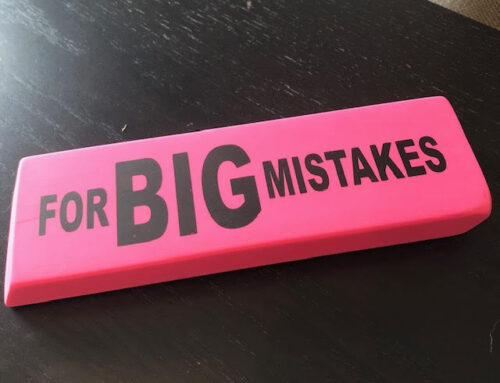Earlier in my career, vacations seemed to add to (rather than alleviate) stress. I could feel my anxiety rising leading up to any vacation.
My list always felt too long and my time was short.
I’m not alone in this. According to a Pew Research Center survey, fewer than half of US workers use all their vacation days. And Expedia’s 2023 “Vacation Deprivation report” showed similar results for Canadians with workers in Ontario and British Columbia reporting the highest levels of vacation deprivation, at 62 per cent.
I’m sure I don’t need to remind you of the restorative value of taking a break. But sometimes the stress we experience before and after a vacation can leave us wondering if the vacation was even worth it when our post vacation glow disappears within a few hours.
To help you head into the holidays feeling calm and in control, I have a fresh approach to this challenge. The Simplify Filter (a tool I write about in my book, Workday Warrior), is designed to help you scale back, streamline, or seek help.
I tested this approach before our family vacation earlier this year and here’s how it worked.
1-Scale back
If you’re anything like me, you want to get it all done. Now. And a looming vacation seems to intensify this unrealistic desire. Yes, it would have been nice to finish that research, update the project plan, and paint the spare bedroom. But many of these tasks have been waiting for a while and could continue to wait until after my return.
So, the first thing I did was reset my own expectations. I accepted that I wasn’t going to get it all done. Instead, I made a few ruthless decisions about what could wait until after I returned. In some cases, I renegotiated deadlines. In other cases, I completed some of a task – the essential bits – and left the nice-to-have parts for later. In other cases, my team and I decided a task wasn’t worth doing at this time. I lightened my pre-vacation list by parking all these tasks, along with any temptation to feel guilty.
Similarly, I suggest you ask yourself what you can do to scale back, without sacrificing your quality standards? Can you revisit your list with a sharp focus on what can be postponed? Re-negotiate deadlines with your colleagues and clients?
It may sound counterintuitive to think about scaling back, but this is exactly what allows us to focus on what matters most.
2-Streamline
The reality is we all need to get work done. We can’t postpone every task. But when we’re working with less time, we need to find ways to streamline.
One of my big pre-vacation projects was to prepare detailed speaking notes for a colleague who was leading one of our training programs. These notes usually run about 50 pages and take countless hours to finesse. But I didn’t have the luxury of countless hours. So, I played with a new approach: I recorded an informal video of me presenting this program and simply talked through it. The result? Excellent! In fact, my colleague said he preferred being able to study the video as I presented. This gave him much more nuanced information than he would have gleaned reading a report. And then, while I was on vacation, another colleague had the video transcribed, which has formed the basis for the detailed script we’ll eventually write. I saved time and the end goal, to support my colleague with his prep was achieved.
Now, here’s a note for the perfectionists in the crowd. No doubt, we all share high standards, and we wouldn’t be where we are today without those standards in place. You set a high bar and you have the skills to exceed that bar.
But don’t let this be an excuse for finding more efficient ways to work while still achieving top notch results. Other than a few rare exceptions (like when you’re dealing with numbers), perfection is unattainable. Good is better than perfect.
What can you do to streamline? Can you share high level feedback instead of an in-depth review? Can you shorten meetings? Can you leverage the Pomodoro Technique to prompt you to stay focused and thus work more efficiently?
3-Seek help
We all know work is a team sport. Teams are designed to provide one another with coverage, even if the overlaps are not perfectly aligned. We need to rely on our colleagues to tackle big goals. But sometimes, high performers get stuck in the “no one can do it as well as I can” mentality.
No doubt, you are the best person to tackle much of your list. It’s what makes you you. But there are likely several people who can step in and cover you while you are off. Dare I say, they might even do parts of your job better. So go ahead and cite these people in your out of office message and accept the help just like you would help them when they’re away.
Scale back. Streamline. And seek help. The Simplify Filter is an excellent tool for busy people.
I hope this strategy helps you enjoy your well-deserved work-free vacation.
Now, you may be wondering how this all worked out for me. I’ll admit my vacation prep didn’t play out perfectly. Like all of us, I had to navigate a few zingers that threatened to throw me off, and I did put in a bit more effort in the time leading up to my time off. But the Simplify Filter gave me more time and energy to accommodate these unknowns. And overall, I headed into my vacation feeling better than I had for years, which I count as a win.
Now if only I could do something about my overpacking.
(This was originally published on The Productive Writer and has been adapted, with permission, for publication here).








Leave A Comment